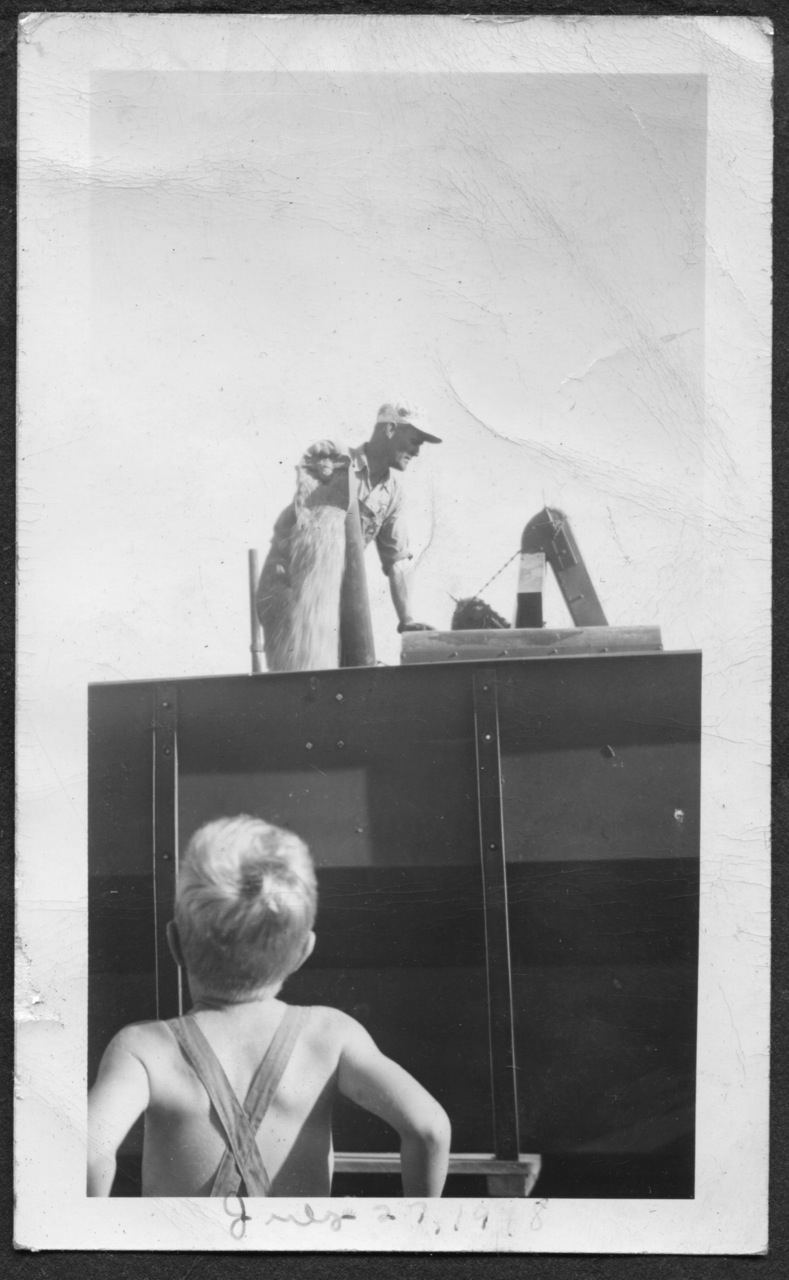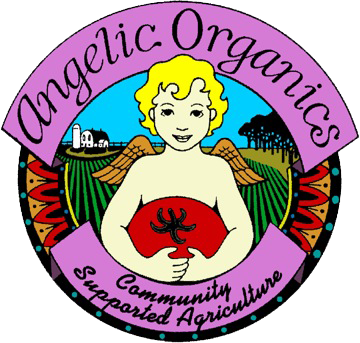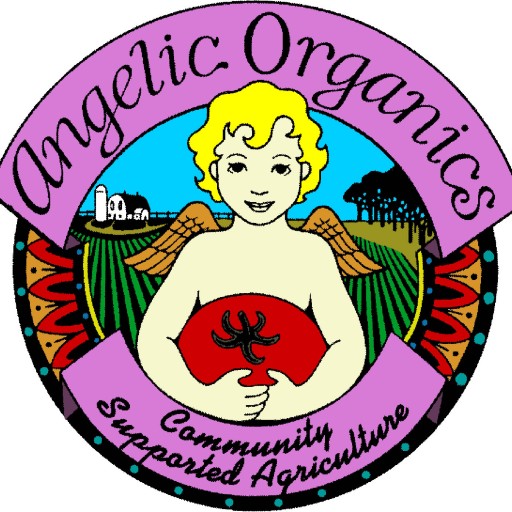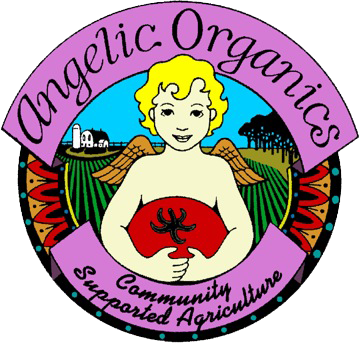Farmer John Writes: Showdown in the Netherlands
Week 16, September 26th – 30th
Your Box This Week —Thursday & Friday Deliveries:
Please note: this summary is written before we pack your box—be aware that some guesswork is involved. As always, be sure to thoroughly wash all of your vegetables.
Brassicas — Broccoli or Cauliflower
Cooking Greens — Brussels Sprouts Tops, Baby Kale (in bag)
Root Crops — Potatoes, Beets with Greens
Salad Greens — Lettuce
Alliums — Leek
Herbs — Cilantro
Brussels Sprouts Tops
Read about Brussels Sprouts Tops in the last issue of Farm News The Farm or Paris?, where you can also read about our fabulous Field Day.
Forgotten at the Field Day and at Woodstock
Shareholders left behind at least 4 items at the recent Field Day—all of them legal. It made me wonder what was left behind at Woodstock in 1969. Did the items fill a calf pen in host Max Yasgur’s barn? Did they fill his whole hayloft?
Weather in Your Food
Last week I wrote about the drought we are experiencing. This past week, a heat wave joined the drought—a heat wave in late September, the hottest stretch of weather all season. The heat has started to turn some of the baby greens yellow.
This weekend, we will irrigate the spinach thoroughly to encourage it to survive until harvest.
This sort of rampant heat is much more common in late spring. Early in the season, it occasionally renders greens and broccoli un-harvestable. In the fall, however, it is extremely rare to have weather so hot that it will damage crops. Besides yellowing the baby greens, it can make the lettuce bolt, and it can cause the broccoli heads to turn yellow and to separate. Normally, the fall broccoli gracefully glides into cool weather and patiently awaits harvest. This fall, we are harvesting much of the broccoli early, before the heads reach their glorious fullness.

Beet Red
We are Partners in a Transformative Model
I have recently been pondering the disconnect between the way in which many regard our CSA and what our CSA actually is. Our CSA is primarily a partnership between the farmer and the shareholder. Although it is a business, it is not a typical business model; it is a partnership, in which the farm is a stand for the shareholder and the shareholder is a stand for the farm.
Rudolf Steiner and the Basis for Community Supported Agriculture
“Human morality is based upon – when it does not consist out of mere words or fine speeches or out of intentions that are never realised – the genuine interest of one person in the other, on the ability to truly see another person. The human being who can empathise with others will, out of this understanding of other people, display social-moral impulses.”
~ Rudolf Steiner, Dornach, Switzerland, Dec 15, 1922
Shareholder Nancy McClelland and the Passion for Community Supported Agriculture
Note from Farmer John: We get many notes like below from our shareholders (and we get plenty of the polar opposites, too.) I would love to publish all the uplifting notes and letters we receive from shareholders, but there’s a limit on space and time.
“I can hear Farmer John’s frustration in each newsletter as some people complain about too much of this veggie or too little of that one, and others have the exact opposite complaints. I can hear the pain in his voice about entire crops rotting in the mud, or losing a field of something for another reason, or not including something because it’s sub-standard.
“Well you know what? I’ll say the same thing I said last year. And that I say every year — we’ve been around since I think 2000, and we’re not going away. We LOVE our veggie share. We love everything you send us, and the things we didn’t used to love? Guess what! We do now! We’ve found recipes for EVERYTHING — even things we didn’t like in the past: by now there’s at least one recipe that makes us love it. And there are a million veggies that we’d never even heard of 17 years ago that we now preach the gospel to all our neighbors over… we’re vegetable evangelists.
“What people don’t seem to get is that this isn’t about just them. This is about knowing your farmers, protecting the land, sharing food in community, seeing the bounty, experiencing the ups and downs of weather, bugs, equipment failure… but without ever having to get dirty. It’s taught us to enjoy the surprise of what the season can bring us.
“This year I’ve experienced a major medical setback, and haven’t been able to cook nearly as much as usual. My amazing husband has picked up the slack, and is so dedicated to the veggies that even though he’s overburdened with taking care of me, he makes the time to go through the box and use everything. There was one month we weren’t able to do so, and for two of those weeks our boxmates took the whole box and made dishes for us, and the other two weeks, a neighbor did the same with our half. So even when we weren’t able to cook, we got to eat your veggies. Because we live in community, and that’s what this whole thing is about. It’s not about whether one person likes peashoots or not.
“…we LOVE [pea shoots]…They are especially delicious if you pick the leaves off and throw them in with warm boiled potatoes, thinly-sliced onions, olive oil, and mustard. Serve warm or cold.
Love,
Nancy McClelland”
Farmer John and the Showdown for Community Supported Agriculture
Although I have mentioned the following episode in a former issue of Farm News, I am sharing it again today:
As the subject of the feature documentary film The Real Dirt on Farmer John, I was one of three members of the discussion panel of the Green Forum at the International Documentary Film Festival of Amsterdam. There were well over 100 people in the auditorium, occupying a semi-circle of ascending tiers of seats. The year was 2006.
The forum moderator inquired, “Mr. Peterson, what hope does your CSA agribusiness model offer to the green movement?”
“It’s not agribusiness we’re talking about. It’s agriculture.”
“It’s agribusiness, Mr. Peterson. Proceed.”
“It’s agriculture.”
“It’s agribusiness that you do, Mr. Peterson. Proceed.”
“It’s agriculture. You are not entitled to strip the cultural aspect out of growing food, out of farms. Farms are meccas of cultural activity, beacons of social life, and they are also producers of food. They are not exclusively producers of food.”
“It’s agribusiness.”
In 1960 at the United Nations, Nikita Khrushchev pounded his fist and then his shoe on the table, a tantrum that millions of American witnessed on television, and which my family often discussed at the supper table. You can watch this legendary outburst at Khrushchev shoe banging video 10-12-60. I generally believe decorum should prevail in such a public setting. However, I had not flown all the way to Amsterdam from Chicago to listen to this moderator make an uninformed, denigrating declaration about Community Supported Agriculture.
The tension was palpable.
I finally said, “I’m going to stop your whole forum discussion right now. It’s not going one step further unless you refer to CSA as agriculture. It’s agriculture. Call it agriculture or we stop.”
Long, long silence.
“Okay, Mr. Peterson. We’ll call it agriculture.”
Bib Overalls
I used to wear bib overalls to farm in—not sure why I stopped. Here’s an article from the magazine Modern Farmer about the history of bibs.

Little Farmer John and his Dad Lester Farm in Bib Overalls
Overheard
That malt went right into my attitude.
Warmly,
Farmer John
Please Fold Your Boxes Properly and Return Them
The farm re-uses the vegetable boxes. Flaps are easily torn when the boxes are dismantled improperly, and then the box bottom might later burst open with fresh, organic local produce heading towards the floor. Please carefully flatten your box and return it to your delivery site. If you receive home delivery, place it in the location where your box is delivered.
Let us Know
Let our office know anything you’d like to share about this week’s box at email hidden; JavaScript is required. Please note the week and day of delivery, your site, when you picked up your box, and any comments about your box.
More from Shareholders
Visit us often at www.facebook.com/angelicorganics, where we post exciting farm developments regularly, and shareholders post recipes, tips, and photos.f



